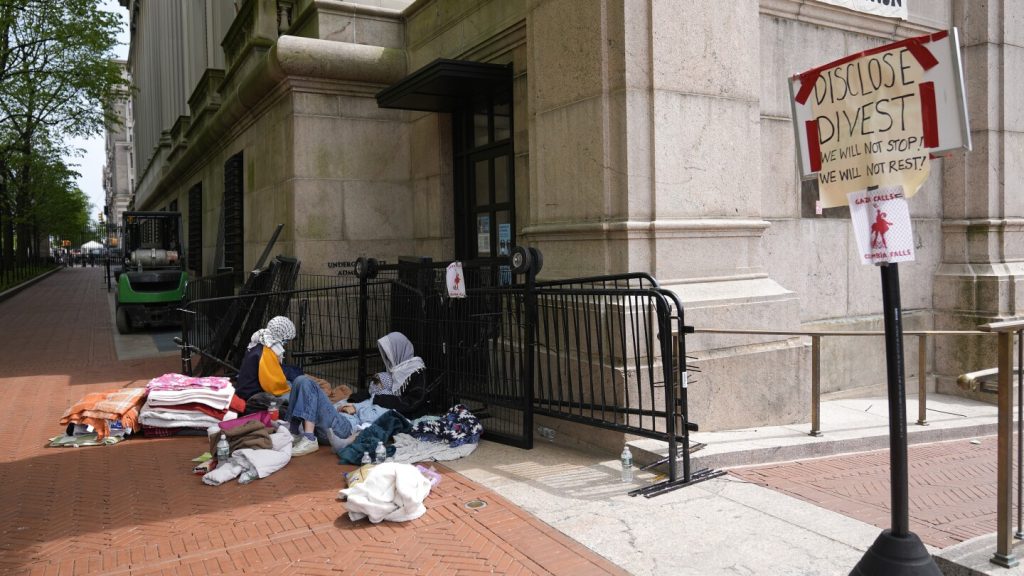A two-week standoff between pro-Palestinian protesters and college administrators at Columbia University in New York has escalated, with protesters refusing to leave an academic building despite a deadline issued by the university. This comes after allegations of antisemitism arose during protests against Israel’s actions in the war in Gaza. The university president, Nemat Shafik, faced criticism from Republicans during a congressional hearing for not doing enough to combat concerns about antisemitism on the campus. The situation at Columbia has sparked a national conversation about free speech, antisemitism, and the treatment of pro-Palestinian protesters on college campuses.
The protests at Columbia University have led to a series of arrests, including over 100 protesters who were detained by New York City police. This incident garnered national attention and inflamed protests on college campuses across the country. In response, other universities such as the University of Southern California and the University of Michigan have seen pro-Palestinian encampments being set up. The arrests and cancelation of events like USC’s commencement speech have further fueled the protests, leading to clashes with police and closures of university campuses to the public.
The unrest at Columbia has resulted in the cancellation of in-person classes and the swelling of a pro-Palestinian encampment at New York University. Police have been called in to disband the protests at NYU and Yale, leading to more arrests. The situation has escalated to the point where President Joe Biden has addressed the unrest, condemning both antisemitic protests and those who fail to understand the situation with the Palestinians. As tensions continue to rise, universities across the country are preparing to shut down encampments amid concerns of antisemitic activity and disruptions to upcoming commencement ceremonies.
Despite extensive negotiations with administrators, Columbia University students remain at an impasse and intend to continue their encampment until their divestment demands are met. The school has threatened to suspend students who defy deadlines to leave, leading to a standoff with protesters who refuse to vacate. More arrests are being made at various campuses nationwide, with the total number nearing 1,000 as the end of the school year approaches. Protesters at Columbia have taken over a campus building, barricading entrances and hanging banners in defiance of university warnings of expulsion.
The situation at Columbia University has become a focal point for debates surrounding free speech, antisemitism, and the treatment of pro-Palestinian protesters on college campuses. The protests have sparked a national conversation about Israel’s actions in Gaza and the response from universities and law enforcement. As tensions continue to rise, universities are faced with the challenge of balancing free speech rights with concerns about antisemitic activity and disruptions to campus life. The outcome of the protests at Columbia and other universities may have lasting implications for the future of activism and free speech on college campuses.


